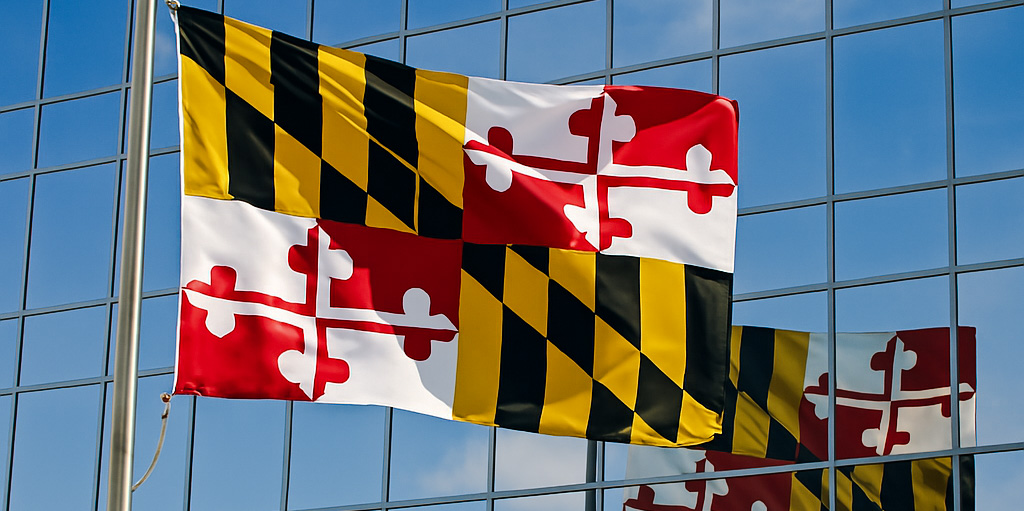View by Topic
Recent Articles
-
Mold Testing in Maryland Real Estate under the New LawSaturday, June 14th, 2025
-
Energy Star: A Quiet Exit and a Bright Future Beyond GovernmentSaturday, June 7th, 2025
-
Congress Blocks California’s Gasoline Car BanSaturday, May 31st, 2025
-
EPA Will Keep Current Limits for “Forever Chemicals” in Drinking WaterSaturday, May 24th, 2025
-
Court Indefinitely Pauses SEC Climate Rule LitigationSaturday, May 17th, 2025
View by Month/Year
“Green Building Law Update” Headlines
Recent Articles & News from
Stuart Kaplow’s blog
at GreenBuildingLawUpdate.com
- Congress Blocks California’s Gasoline Car Ban: A Legal and Policy Analysis June 1, 2025
- EPA Will Keep Current Limits for “Forever Chemicals” in Drinking Water May 25, 2025
- Court Indefinitely Pauses SEC Climate Rule Litigation May 18, 2025
- Maryland is About to Regulate Mold: But is the Cart Before the Horse? May 11, 2025
Subscribe to the Green Building Law Update!
Stuart Kaplow brings his expertise and extensive experience to the table with his unique digital publication, "Green Building Law Update". Subscribers receive regular updates to keep them informed about important issues surrounding Environmental Law, Green Building & Real Estate Law, as well as the emerging demand for Environmental Social Governance (ESG).
Get fresh content through the lense of Stuart Kaplow's cutting-edge expertise, innovative commentary and insider perspective. Don't miss another issue! Subscribe below.

Mandatory GHG Disclosures in Maryland Real Estate Contracts
Maryland law now requires specified greenhouse gas emissions disclosures and exchange of performance data in a contract of sale for buildings subject to the state’s Building Energy Performance Standards.
Failure to comply with the regulation can have significant financial and legal consequences.
Maryland has quietly taken a dramatic regulatory leap, promulgating what is one of the most aggressive environmental disclosure requirements in any real estate market in the country, mandating greenhouse gas emissions disclosures in private business transactions for the sale of most large buildings.
BEPS
No doubt there are very large dollar costs for a building owner to comply with Maryland’s BEPS, which requirements include that a covered building be net zero greenhouse gas emissions before January 1, 2040; which is likely material information that a purchaser would need to make a sound investment decision.
A “covered building” subject to the regulation is generally a building 35,0000 square feet or more, subject to a very limited list of exemptions (.. historic buildings, schools, etc.), and including buildings from warehouses and office buildings to multi family rental and condominium buildings, and even houses of worship.
The Regulation
The current regulation in Maryland, which was effective beginning December 23, 2024, is:
.05 Disclosure of Covered Building Benchmarking and Performance Standards Information.
Before a buyer signs a contract for the purchase of a covered building, the building owner selling the covered building shall:
A. Disclose to the prospective buyer that the building is subject to requirements under this subtitle;
B. Transfer the following records to the prospective buyer:
(1) A copy of the complete benchmarking record from the benchmarking tool;
(2) Documentation of data verification;
(3) Documentation of any alternative compliance fee made to the Department; and
(4) Any other records relevant to maintain compliance under this subtitle; and
C. Provide to the prospective buyer the following information:
(1) Baseline performance; and
(2) Interim and final performance standards.
Note, this regulation is different and not the same as the originally proposed version. Those who may have sought to comply with the earlier draft need to use the December 23, 2024, promulgated final version.
This is not a boilerplate real estate addendum or checkbox-style disclosure. Rather, how and where this regulatory disclosure is made within a contract of sale may be a highly negotiated matter; this is unlikely to be the subject of a short form addendum, but rather the subject matter of representations and warranties as well as exhibits transferring data. Consider for a moment a scenario where a tenant provides the landlord owner of a building with data that turns out to be inaccurate, and that is what is disclosed to a prospective purchaser? While beyond the scope of this post, leases in Maryland must now include language for greenhouse gas emission data and related information to be exchanged by tenants and landlords such that building owners can make the required annual government filings, not to mention how costs will be apportioned for making capital improvements to satisfy the 2040 net zero mandate.
These requirements must be fully satisfied prior to contract execution, meaning they should appear not only in exhibits to a sale agreement. This is a significant shift from traditional due diligence practices and elevates environmental performance to a threshold legal concern.
But a key flaw here is that the only Maryland approved benchmarking tool is Energy Star Portfolio Manager, a program of the U.S. EPA that will all but certainly be shut down or sold this year.
Another fault is that an owner of a building must make annual disclosures to the state government reporting on the prior year’s greenhouse gas emissions even if it did not own the building in the prior year (.. like income taxes, with 2024 taxes being reported in a 2025 filing), so a purchaser will now need to obtain that data from a seller in addition to receiving a deed. Annual greenhouse gas emission reporting begins in 2025 for 2024 data!
Enforcement and Legal Exposure
Penalties for noncompliance with this regulation can reach as high as $25,000 a day when enforced by the state government. Such is not perceived by many as a likely risk, but the Maryland Department of the Environment has declined to respond to questions about enforcement.
The larger and greater risk is that a purchaser would learn of the failure to disclose in advance of closing, claiming such to be a material breach of the contract of sale, voiding the contemplated transaction, resulting in the purchaser pursuing a breach of contract claim for money damages, and more ..
Unresolved Questions
Troubling at this juncture is that most real estate industry professionals are not aware of this 2024 regulation. Such is likely because the rule does not exist in a statute, but only in a regulation promulgated by the Maryland Department of the Environment, and it may be the only required Maryland real estate contract disclosure expressed in a regulation; a place few could easily find?
This disclosure requirement, which only exists by regulation and is not authorized by any statute, is suggested by some as exceeding the authority granted to the Maryland Department of the Environment and as such is invalid.
As with most new laws, there is also some uncertainty arising from this new mandate. A common question we have seen is whether or not the sale of individual condominium units is subject to the regulation when in a covered building, given that, in addition to the unit, an undivided common interest in the building is also being conveyed? The Maryland Department of the Environment has declined to respond.
Broader Market Consequences
Beyond provisions mandated by building energy performance standards, matters of greenhouse gas emissions are becoming a fundamental part of real estate transactions in places like Maryland and in other Blue states that still have global warming agendas. In Maryland, prospective buyers and tenants now consider a building’s environmental performance and greenhouse gas emission credentials as essential criteria for their decisions (e.g., a buyer will consider its obligations to make future improvements to comply with greenhouse gas emission reductions mandated by law in out years, for example replacing natural gas equipment with all electric). As a result, representations and warranties are finding their way into real estate sales and lease documents, even when not mandated by law.
Note also, there are other required energy usage and energy efficiency audit disclosures in real estate contracts of sale required in some jurisdictions, including in Montgomery County, Maryland. Those requirements are generally more a consumer protection act related to utility bills, but are closely related to the subject matter discussed here.
The impact of greenhouse gas emission disclosures extends far beyond the real estate sector because the vast majority of U.S. businesses operate in leased space, not to mention that many people live in a multi family building that is a covered building in Maryland. As these new Maryland disclosures shape contracts and agreements across multiple business sectors that occupy space in a covered building, these regulations will impact supply chain decisions, investment choices, and collaboration strategies.
Mandatory greenhouse gas emission disclosures are a response to the new era of environmental consciousness, even at a time when the pendulum is swinging in the other direction. Real estate sector stakeholders are becoming more attuned to the environmental costs of their decisions, and these disclosures can play a pivotal role in promoting aligning business practices with climate goals, but the reality for most real estate purchasers is, this is a matter of significant dollar costs.
Final Thought
Maryland’s mandatory greenhouse gas emission disclosures are a paradigm shift in real estate transactions. Whether the BEPS law stands the test of legal scrutiny is unknown, but for now, this compliance obligation is real, enforceable, and financially consequential.
Whether you are a seller, purchaser, lender, broker, or attorney involved in Maryland real estate, the time to act is now. This is not a disclosure obligation that can be glossed over or added last minute. It is a material regulatory requirement, carrying substantial cost and risk.
_________________________
Join us for the next in our “carbon based life form” webinar series, “Mandatory GHG Disclosures in Maryland Real Estate Contracts” this Tuesday, April 8 from 9 – 9:30 am. The webinar is complimentary, but you must register here.









